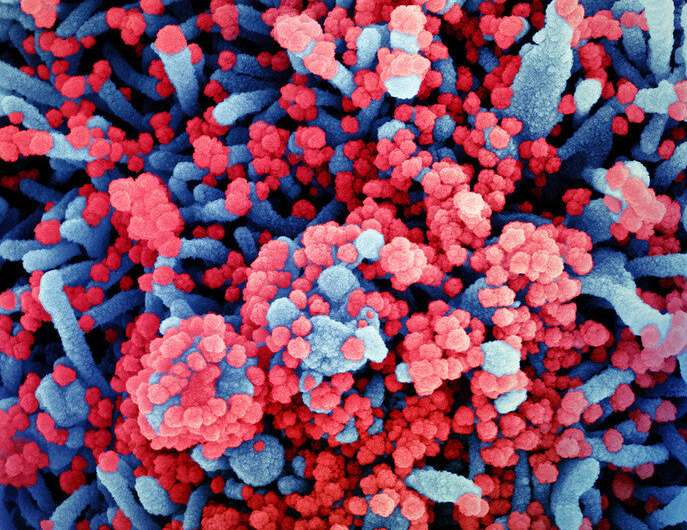Accuracy of commercial antibody kits for SARS-CoV-2 varies widely: study

There is wide variation in the performance of commercial kits for detecting antibodies against severe acute respiratory syndrome coronavirus 2 (SARS-CoV-2), according to a study published September 24 in the open-access journal PLOS Pathogens by Jonathan Edgeworth and Blair Merrick of Guy's and St Thomas' NHS Foundation Trust, Suzanne Pickering and Katie Doores of King's College London, and colleagues. As noted by the authors, the rigorous comparison of antibody testing platforms will inform the deployment of point-of-care technologies in healthcare settings and their use in monitoring SARS-CoV-2 infections.
Throat and nose swab tests for SARS-CoV-2 establish if someone is infected with the virus that causes coronavirus disease 2019 (COVID-19). These tests are highly sensitive—capable of detecting very low viral RNA levels—and are optimal for the early detection of the virus. The performance of these tests depends on the time the sample is collected, with viral load declining after the first week of symptoms. By contrast, antibody tests can determine whether someone has had the virus in the past. For diagnosis later in disease, or in delayed-onset syndromes, antibody tests could form an important part of hospital diagnostic capabilities. In the new study, the researchers developed their own sensitive and specific antibody assay and used it to conduct unbiased, head-to-head comparisons of ten commercial antibody test kits on an identical panel of 110 SARS-CoV-2-positive blood samples from patients admitted to hospitals with COVID-19 and 50 pre-pandemic negatives.
There was a broad range of performance among the tests, with specificity—the ability of the test to correctly identify those without the disease (true negative rate)—ranging from 82% to 100%, and overall sensitivity—the ability of a test to correctly identify those with the disease (true positive rate) - ranging from 60.9% to 87.3%. But all gave the best results when used 20 days or more after the start of symptoms, with most tests reaching a sensitivity value greater than 95%. In addition, antibody levels were higher in individuals with severe illness compared to those with asymptomatic or mild disease. When all commercial tests were compared, lateral flow immunoassays called Accu-Tell, SureScreen and Spring demonstrated highest sensitivity at earlier time points, while maintaining specificities of 98% or above. Such lateral flow immunoassays are affordable, quick and easy to use, and if they are deployed appropriately, could have considerable usefulness in healthcare settings.
Co-author Jonathan Edgeworth notes, "We found that some of the quick single-use kits (LFIAs) are as accurate as our sophisticated laboratory technologies. Encouraged by these findings we are piloting LFIAs in the hospital to give doctors a quick reliable answer in a range of clinical settings."
More information: Pickering S, Betancor G, Galão RP, Merrick B, Signell AW, Wilson HD, et al. (2020) Comparative assessment of multiple COVID-19 serological technologies supports continued evaluation of point-of-care lateral flow assays in hospital and community healthcare settings. PLoS Pathog 16(9): e1008817. doi.org/10.1371/journal.ppat.1008817
















